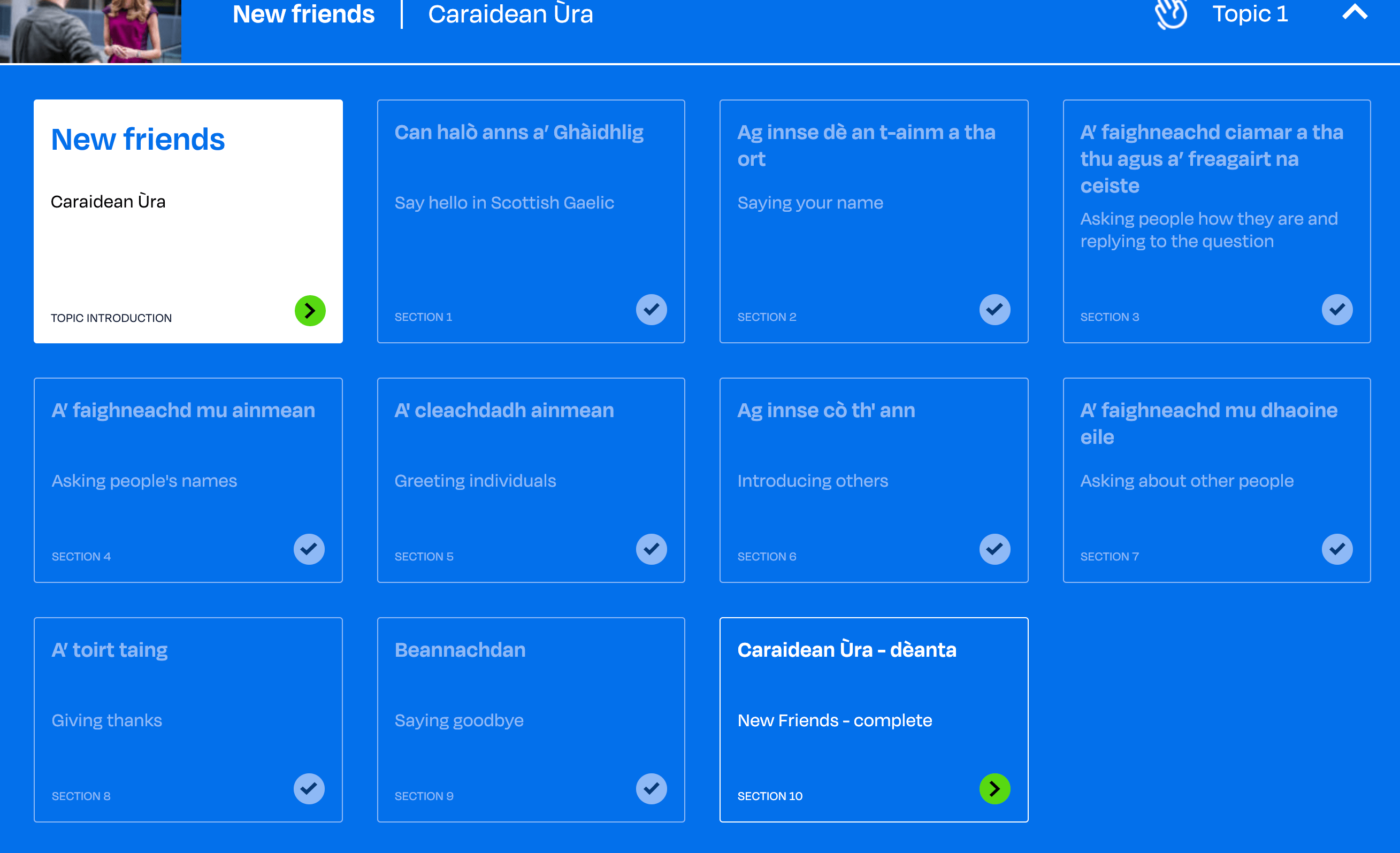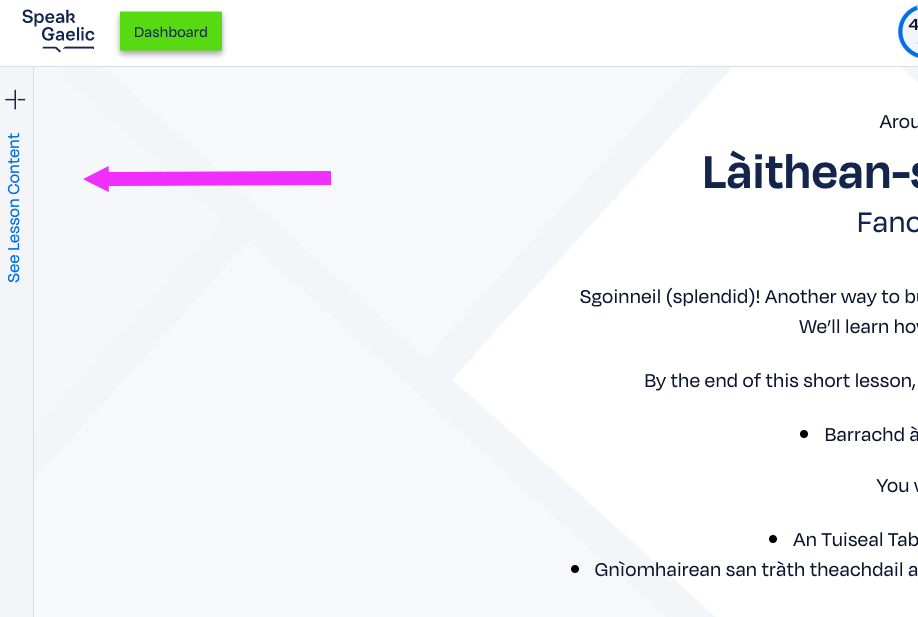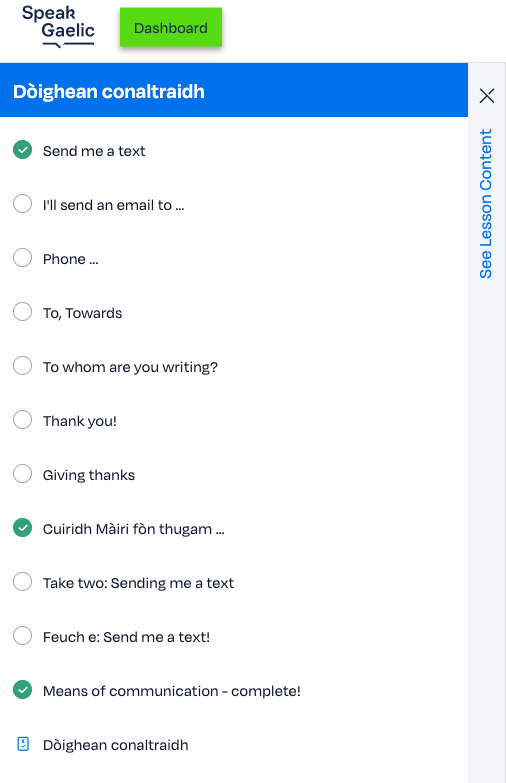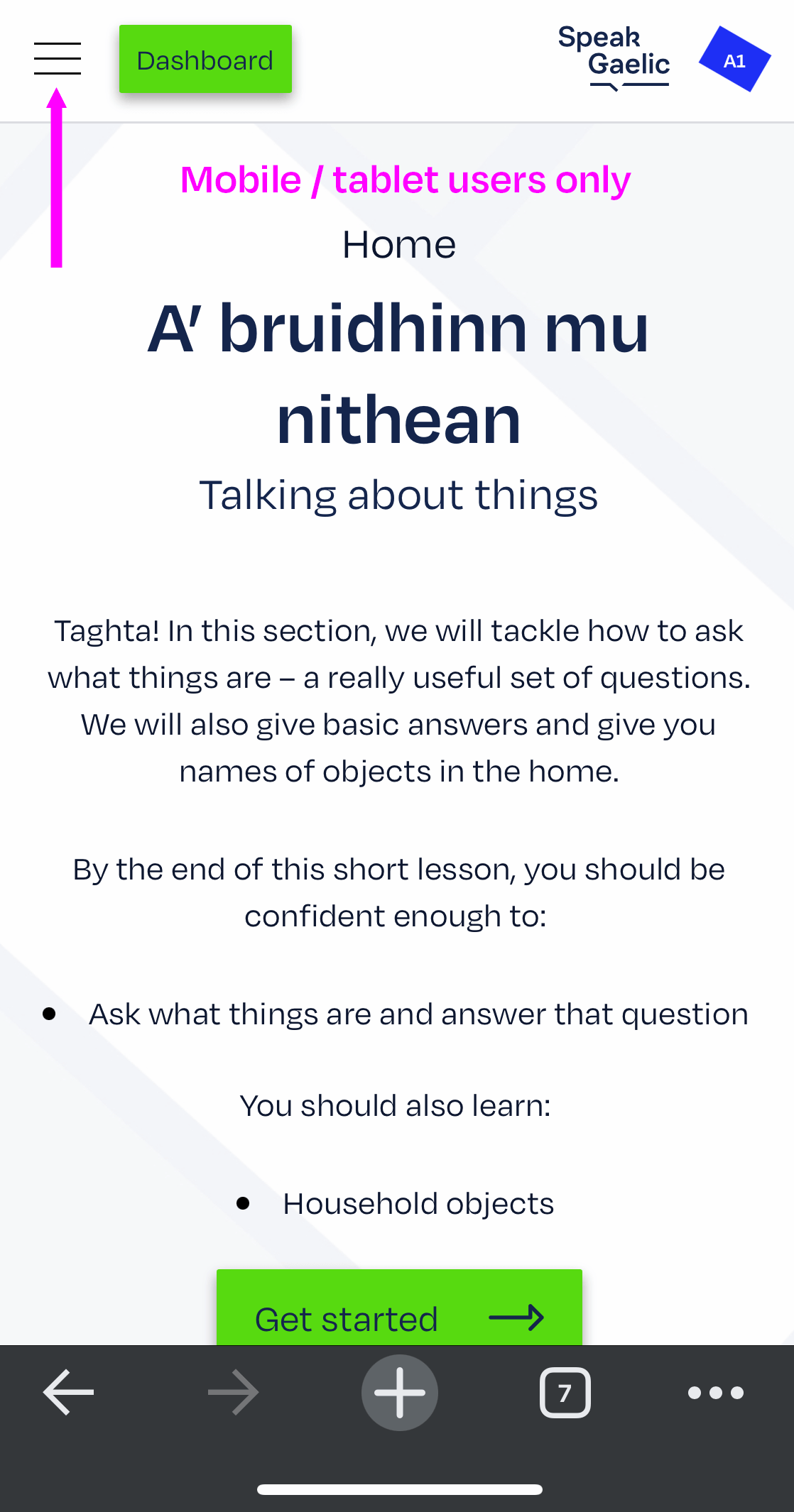Bilingual transcription: Cuideam
Bilingual transcription: Emphasis
Watch this clip where Joy explains emphasis using –SA.
To emphasise a personal pronoun in Gaelic, like mi, thu, e, i, we use special emphatic forms: mise, thusa, esan, ise.
And in the plural: sinne, sibhse and iadsan.
We can use the same emphatic endings with prepositional pronouns, with the small difference that the first person pronoun takes the ending -sa rather than the -se of mise: agamsa, leamsa, dhomhsa.
And all the rest follow exactly the same pattern as the personal pronouns. So thusa and agadsa; esan,airsan; ise and leathase; sinne, bhuainne; sibhse anddhuibhse; iadsan, riuthasan.
The same endings can also be used with possessive nouns, for example: ‘my opinion’ is mo bheachd, but my opinion is mo bheachd-sa.
And we hear exactly the same endings with compound prepositions: ‘about you’ is mu do dheidhinn, but ‘about you’ mu do dheidhinn-sa.
Beside them is ri an taobh, but ‘beside them’: ri an taobh-san.
DÈ DO BHEACHD? | WHAT DO YOU THINK?
Dè an rud as fheumaile mun inneal agad?
What is the most useful thing about your device?
Dè an t–inneal as cumhachdaiche a th’ agad?
What’s the most powerful device you have?
Dè an rud as goireasaiche mun eadar–lìon a bhith againn nar pòcaid?
What’s the most convenient thing about having the internet in our pocket(s)?
Am bi thu a’ faighinn a’ fòn–ghlic as ùr–nòsaiche cho luath ‘s a thig e a–mach?
Do you get the newest most up–to–date phone as soon as it comes out?
A bheil e riatanach fòn–làimhe air choreigin a bhith agad san latha an–diugh?
Is it essential for you to have some kind of mobile phone these days/nowadays?
Dè an app as cudromaiche a th’ agad air a’ fòn–ghlic agad?
What’s the most important app you have on your smartphone?




